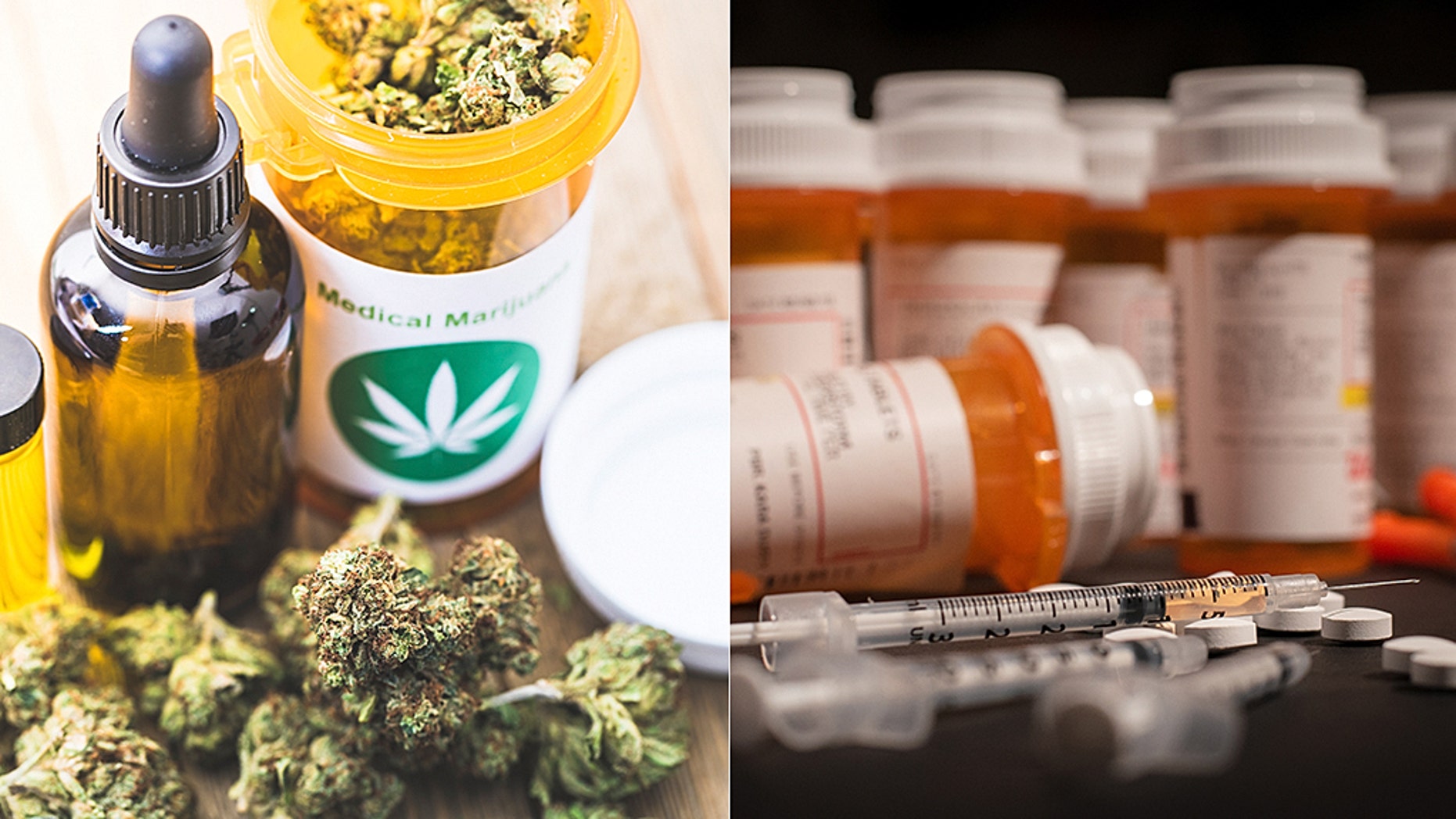
Colorado sealed a check on Thursday that will concede doctors to suggest medical pot to provide conditions they’ve formerly used painkillers for.
(weed opiods iStock)
Colorado is perplexing to assistance tamp down the opioid predicament by permitting doctors to suggest medical pot for any condition meriting a painkiller prescription, The Denver Post reported.
Gov. Jared Polis sealed Senate Bill 13 on Thursday, and a new law is scheduled to go into outcome on Aug. 2, after flitting by Colorado’s General Assembly.
“This will surrogate pot for an FDA-approved remedy — something that’s unregulated for something that’s rarely regulated,” Stephanie Stewart, a medicine in Colorado, told the news outlet.
CBD MAY REDUCE DRUG CRAVINGS FOR HEROIN ADDICTS, SMALL STUDY FINDS
Under Colorado law, medical pot can be endorsed for patients struggling with cancer, glaucoma, HIV and AIDS, PTSD or other ongoing disorders that means serious pain, seizures and nausea. The new law includes all conditions in that opioids could be prescribed.
The bipartisan legislation is a win for pot backers, though it raises concerns with some addiction-centric medical professionals.
“Our genuine regard is that a studious would go to a medicine with a condition that has a medical diagnosis with justification behind it, and afterwards instead of that treatment, they would be endorsed pot instead,” pronounced Stephanie Stewart, a medicine in Colorado.
Backers of a law contend it’s a safer form of diagnosis that will assistance extent the opioid crisis, that is now during widespread levels in a U.S. According to a National Institute on Drug Abuse, each day some-more than 130 people die after overdosing on opioids.
METROPOLITAN MUSEUM OF ART TO REJECT FUNDING FROM SACKLER FAMILY OVER LINKS TO OPIOID CRISIS
“Adding a condition for that a medicine could suggest medical pot instead of an opioid is a safer pain government apparatus that will be useful for both a doctors and patients,” pronounced Ashley Weber, executive executive of Colorado NORML, a pro-marijuana advocacy group.
The law relates to residents over and underneath a age of 18. People underneath a age of 18 who take medical pot contingency feast it in an succulent form when regulating it on propagandize drift or transportation.
The House voted 47-16 in preference of a bill, with many Democrats and a few Republicans ancillary it. The Senate voted 33-2, with usually regressive Senators. John Cooke, R-Greeley, and Bob Gardner, R-Colorado Springs, in opposition.
.











